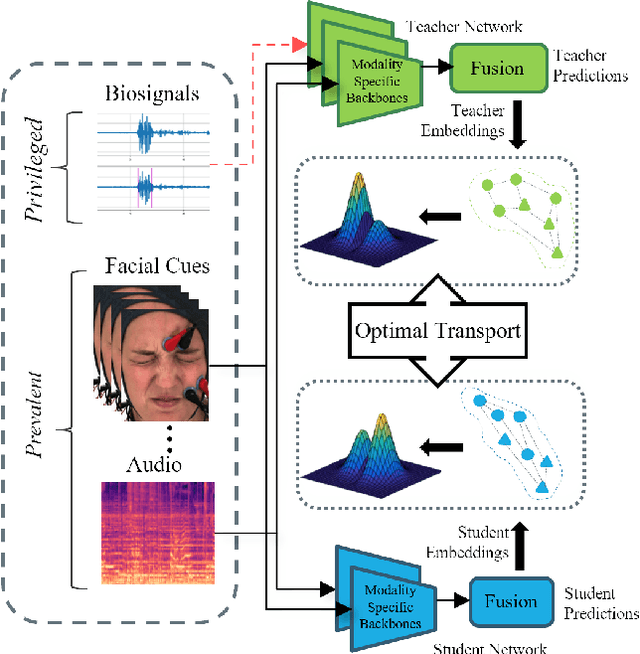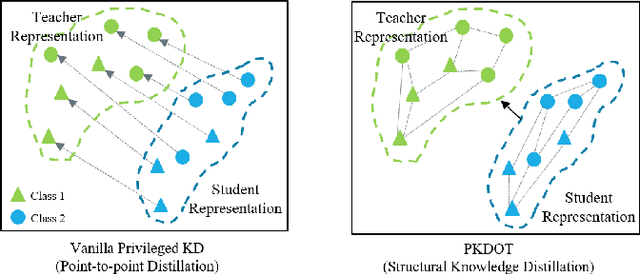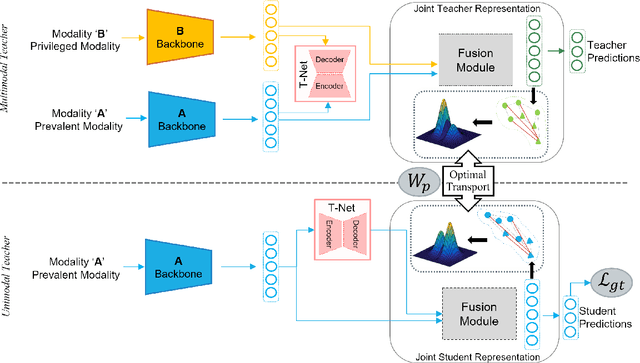Distilling Privileged Multimodal Information for Expression Recognition using Optimal Transport
Paper and Code
Jan 27, 2024



Multimodal affect recognition models have reached remarkable performance in the lab environment due to their ability to model complementary and redundant semantic information. However, these models struggle in the wild, mainly because of the unavailability or quality of modalities used for training. In practice, only a subset of the training-time modalities may be available at test time. Learning with privileged information (PI) enables deep learning models (DL) to exploit data from additional modalities only available during training. State-of-the-art knowledge distillation (KD) methods have been proposed to distill multiple teacher models (each trained on a modality) to a common student model. These privileged KD methods typically utilize point-to-point matching and have no explicit mechanism to capture the structural information in the teacher representation space formed by introducing the privileged modality. We argue that encoding this same structure in the student space may lead to enhanced student performance. This paper introduces a new structural KD mechanism based on optimal transport (OT), where entropy-regularized OT distills the structural dark knowledge. Privileged KD with OT (PKDOT) method captures the local structures in the multimodal teacher representation by calculating a cosine similarity matrix and selects the top-k anchors to allow for sparse OT solutions, resulting in a more stable distillation process. Experiments were performed on two different problems: pain estimation on the Biovid dataset (ordinal classification) and arousal-valance prediction on the Affwild2 dataset (regression). Results show that the proposed method can outperform state-of-the-art privileged KD methods on these problems. The diversity of different modalities and fusion architectures indicates that the proposed PKDOT method is modality and model-agnostic.
 Add to Chrome
Add to Chrome Add to Firefox
Add to Firefox Add to Edge
Add to Edge